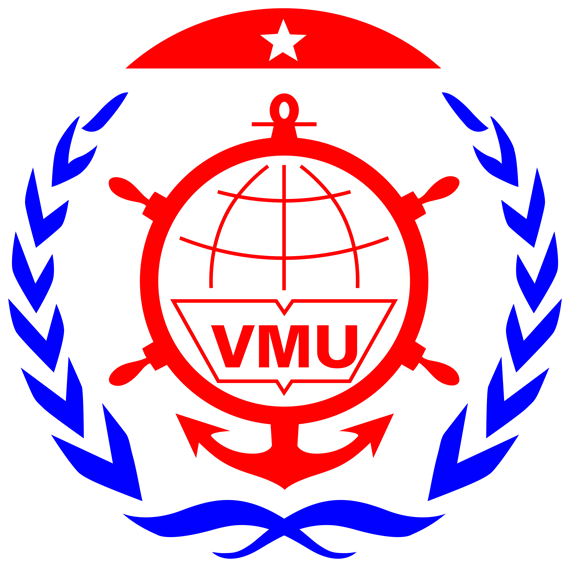1. Introduction
|
Program title: |
Bachelor of Maritime Safety Engineering |
|
Graduation degree: |
Bachelor's degree |
|
Study model: |
Full-time |
|
Total credits: |
139 |
|
Used language: |
Vietnamese |
|
Training duration: |
4 years (8 semesters) |
|
Responsible Faculty: |
Faculty of Civil Engineering |
|
Website: |
|
|
Address: |
Room 911, 9rd floor A6 Building, Vietnam Maritime University 484 Lach Tray - Le Chan - Hai Phong |
The Maritime Safety Engineering training program at Vietnam Maritime University, designed by the department of Waterways Safety, Faculty of Civil Engineering, draws upon programs from various esteemed domestic and international universities. Regularly updated to align with industry needs and adhere to the Ministry of Education & Training and Vietnam Maritime University regulations, the program equips learners with essential knowledge, skills, and attitudes. It meets the Vietnamese National Qualifications Framework and international standards, preparing graduates to excel in the 21st-century workforce. Graduates of the program earn a bachelor's degree in Maritime Safety Engineering, with the ability to design, implement, and operate maritime safety constructions. They specialize in port management, maritime technical infrastructure, waterways, and maritime safety, construction investment projects of Infrastructure and maintenance of maritime and waterway transport systems. Engineering and technology of topographic survey for planning, design, construction of civil works, transport, coastal and offshore infrastructure. Execution of waterways and marine construction. They are dynamic, creative, and adaptable, ready to compete in the Asia-Pacific region and contribute to national development and international integration.
The Bachelor of Maritime Safety Engineering at Vietnam Maritime University offers a comprehensive education that prepares students for successful careers in the coastal and offshore engineering. With a focus on both theoretical knowledge and practical skills, graduates are well-equipped to meet the challenges in the future.
2. Curriculum
The Bachelor of Maritime Safety Engineering program is organized into 8 semesters as follows:
Throughout eight semesters, students undertake a comprehensive curriculum that combines theoretical and practical learning. In Semester I, students gain foundational knowledge and skills through Algebra, Physics and fundamental Chemistry, which emphasizes to improve their knowledge of basic. Introduction to Civil Engineering offers insights into Maritime Safety Engineering, while General Law covers the importance of laws in daily life. Environment and environmental protection provide an understanding of Basic knowledge of the structure and composition of the environment and resources, and Soft Skills 1 to build communication and teamwork abilities.
Semester II broadens students' knowledge with subjects like Philosophy of Marxism and Leninism, General English 1, Microsoft Office. Engineering Mechanics, Hydraulics focus on statics, kinematics and fluid dynamics, while Descriptive Geometry-Engineering Drawing provides method of representing real objects in 2 & 3 dimensions, Engineering Chemistry have the Laboratory exercises on chemical reactions and material corrosion processes.
Semester III delves deeper into topics such as Basic geology, Strength of Materials, Construction Materials. Basic Geodesy, Basic Informatics develop knowledge of cartography and skills of using software to edit technical drawings. Meteorology, Hydrology and Oceanography enhances to collect and calculate hydrological data, while Political economics of Marxism and Leninism, General English 2, Business management and Construction law also are enhanced.
Semester IV explores advanced subjects like Structural mechanics, Soil mechanics and Foundations, Reinforced Concrete and Steel Structures, Foundation of Construction Geodetic, which focuses on construction. Satellite Geodesy and Port infrastructure address space science and port, while Science socialism concentrates the comprehensive and comprehensive understanding of Marxism-Leninism and Ho Chi Minh thought, and Basic English 3 strengthens language skills.
In Semester V, students study Geodetic Networks and Adjustment Computation Techniques, Marine topographic and geological survey, Application of GIS and Remote Sensing in Maritime safety, Specialized informatics to enhance their understanding of topography. Structure of Aids to Navigation, Basic construction techniques teaches design and execution. An internship provides an experience of Basis Geodesy and Meteorology, Hydrology and Oceanography training. Geodetic engineering works and Analysis of investment efficiency are optional courses that enhance student’s technical expertise, while Ho Chi Minh’s Ideology continue to be improved on formation and development process
Semester VI focuses on specialized topics like the Aids to Navigation, Marine Cartography, Waterways and port water area, Hydrographic surveying and monitoring, Port and Waterway Operation Management and Project Management. River and coastal engineering and Startup are optional subjects while History of the Vietnamese communist party provides basic knowledge about the Communist Party of Vietnam
Semester VII emphasizes management, execution and maintenance of port and waterways, focus on Application of Technology in Port & Waterway Project Operation Management. On-site training covers the use of coastal and offshore surveying equipment, while the option courses include the knowledge of Occupational health and safety management, Port and waterway services exploitation, and Port safety and security management
In the final semester, students consolidate their learning through practical applications. The Graduation Internship immerses them in real-world challenges, and the Graduation Project showcases their ability to integrate and apply knowledge from previous semesters.
